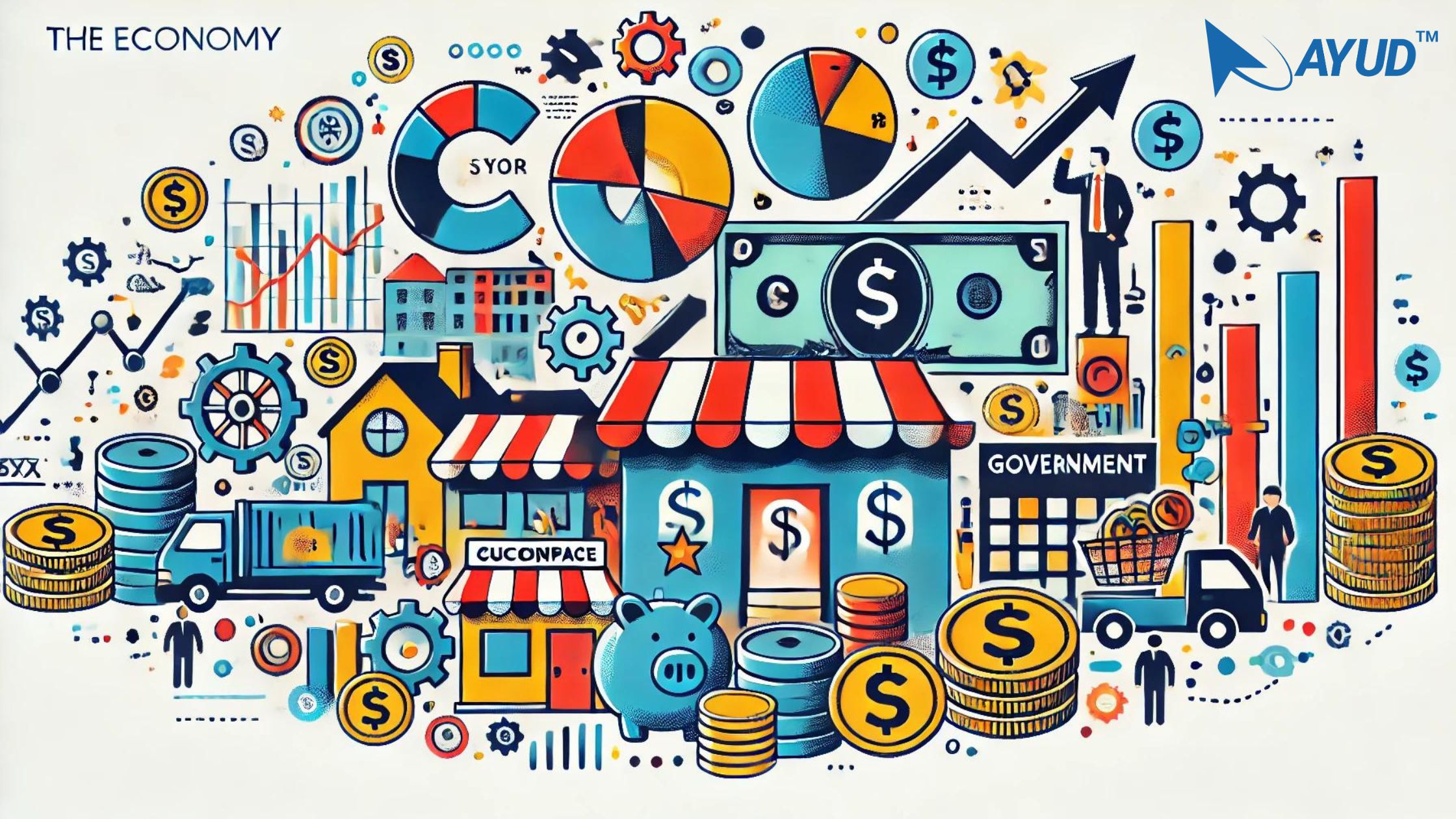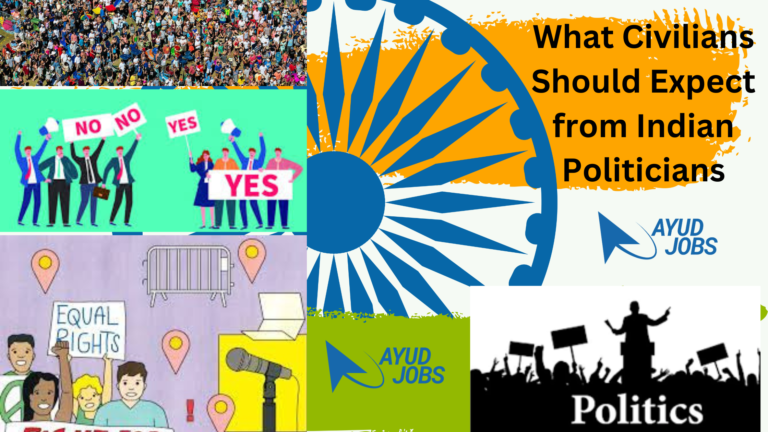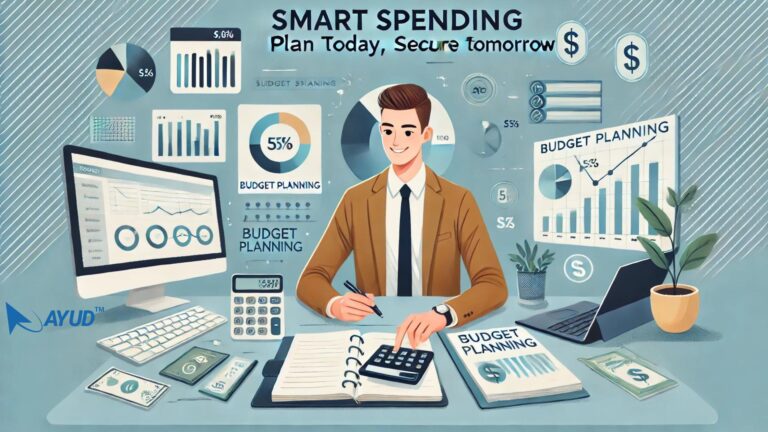Understanding the Economy: A Simple Guide for Everyone
Understanding the Economy: A Simple Guide for Everyone
The economy is a term we often hear, but what does it really mean? The economy is like the engine of a country. It drives everything, from the products we buy to the jobs we work. Understanding the economy helps us make better decisions in our daily lives, whether we’re saving money, choosing a career, or even voting in an election. In this blog, we’ll explore the basics of the economy, why it’s important, and how it affects you personally. We’ll also share a real-life story to show how understanding the economy can make a difference in your life.
What Is the Economy?
The economy is the system that a country uses to produce and distribute goods and services. Think of it as a giant marketplace where businesses, consumers, and the government interact. Businesses make products or offer services. Consumers, like you and me, buy them. The government, meanwhile, sets rules and regulations to ensure the market runs smoothly.
There are different types of economies, including:
Market Economy: Here, supply and demand determine prices. It’s like a free market where businesses decide what to produce based on what consumers want.
Command Economy: In this system, the government controls what is produced and how resources are distributed.
Mixed Economy: This is a combination of a market and command economy. Most countries, including the United States, have a mixed economy.
Transitioning between these different types of economies, countries try to find the best way to ensure economic stability and growth.
Why Should You Care About the Economy?
You might wonder why the economy matters to you. The truth is, it impacts almost every aspect of your life. From the price of groceries to your job prospects, the state of the economy plays a crucial role.
Here are some reasons why understanding the economy is important:
Job Opportunities: A strong economy means more jobs and better pay. When businesses do well, they hire more people, and wages often rise.
Inflation: Inflation refers to the rise in prices over time. Understanding inflation helps you plan your finances better, so you’re not caught off guard by rising costs.
Interest Rates: The economy affects interest rates, which in turn influence your savings and loans. Knowing how interest rates work can help you make smarter decisions about borrowing and investing.
Government Policies: Governments often create policies to manage the economy. Understanding these policies can help you make informed decisions, like who to vote for in an election.
As we transition into a deeper understanding of these concepts, you’ll see how each element ties into the bigger picture of your life and your country’s well-being.
How Does the Economy Work?
The economy works through the interactions of different players—businesses, consumers, and the government. Let’s break this down:
Businesses produce goods and services to meet the needs and wants of consumers. They decide what to produce based on consumer demand.
Consumers buy these goods and services, which drives demand. The more people want something, the more businesses will produce it.
The Government plays a regulatory role. It can influence the economy through policies, taxes, and spending.
These three players are constantly interacting, and their decisions affect the overall health of the economy. For example, if consumers stop spending money, businesses may cut back on production, leading to job losses. On the other hand, if the government lowers taxes, consumers might have more money to spend, boosting the economy.
Key Indicators of the Economy
To understand the economy, you need to know about key indicators that show how well or poorly it’s doing. Here are some of the most important ones:
Gross Domestic Product (GDP): This measures the total value of goods and services produced in a country. A growing GDP usually indicates a healthy economy.
Unemployment Rate: This shows the percentage of people who are actively looking for work but can’t find a job. A high unemployment rate is a sign of economic trouble.
Inflation Rate: This measures how quickly prices are rising. Moderate inflation is normal, but high inflation can be a problem.
Interest Rates: Set by the central bank, these rates influence borrowing and spending. Lower rates can stimulate the economy, while higher rates can slow it down.
Understanding these indicators can help you make better financial decisions. For example, if you know that interest rates are likely to rise, you might decide to lock in a lower rate on a mortgage or other loan.
Real-Life Example: How Understanding the Economy Made a Difference
Let’s look at a real-life story to show how understanding the economy can have a positive impact.
Meet Sarah. Sarah was a recent college graduate who had just started her first job. She was excited to finally earn a paycheck, but she noticed that despite getting a raise, her money didn’t seem to go as far as it used to. Groceries were more expensive, and rent kept going up.
Sarah decided to learn more about the economy. She discovered that inflation was on the rise, which explained why her costs were increasing faster than her income. Armed with this knowledge, Sarah decided to take action. She started budgeting more carefully, cutting back on non-essential expenses, and even invested in a small side business to increase her income.
When the central bank raised interest rates to combat inflation, Sarah was ready. She had already paid off her high-interest debts and was able to save more money thanks to the higher interest rates on her savings account.
Sarah’s understanding of the economy helped her navigate through tough times, and she emerged financially stronger. Her story shows that by paying attention to the economy, you can make informed decisions that positively impact your life.
How to Apply Economic Knowledge in Your Life
Understanding the economy isn’t just for economists. It’s for everyone who wants to make better financial decisions and improve their quality of life. Here’s how you can apply this knowledge:
Budget Wisely: Keep an eye on inflation and adjust your budget accordingly. This will help you manage your expenses better.
Save and Invest: Use your understanding of interest rates to decide when to save and when to invest. Higher interest rates might be a good time to save more, while lower rates could encourage investing.
Stay Informed: Follow economic news to stay updated on trends that could affect your job, investments, and spending.
By adopting these habits, you’ll be better equipped to handle economic changes and make decisions that lead to financial stability and growth.
The Role of the Government in the Economy
The government has a significant impact on the economy. Through fiscal and monetary policies, it can influence economic growth, inflation, and unemployment.
Fiscal Policy: This involves government spending and taxation. By increasing spending or cutting taxes, the government can stimulate the economy. Conversely, by reducing spending or raising taxes, it can cool down an overheated economy.
Monetary Policy: This is managed by the central bank and involves controlling the money supply and interest rates. Lowering interest rates can encourage borrowing and spending, while raising them can help control inflation.
Understanding these policies helps you anticipate changes in the economy and adjust your financial plans accordingly.
Using these hashtags in social media posts and incorporating them into the blog will help attract readers and improve SEO performance.
Conclusion: The Power of Economic Knowledge
Understanding the economy is like having a map in a foreign city. It guides you, helping you make sense of the world around you. Whether you’re a student, a professional, or someone just looking to improve your financial situation, knowledge of the economy can empower you to make better decisions.
By staying informed, budgeting wisely, and understanding key economic indicators, you can navigate through life’s financial challenges with confidence. Just like Sarah, who used her economic knowledge to thrive during tough times, you too can use this understanding to create a more secure and prosperous future.
Incorporate these insights into your life, and you’ll see the positive impact it can have, not just on your finances but on your overall well-being. The economy may seem complex, but with the right knowledge, you can master it and use it to your advantage.
#EconomyExplained #PersonalFinance #Inflation #GDP #InterestRates #EconomicGrowth #FinancialPlanning #BudgetingTips #EconomicStability #ayud #ayudjobs #askayud #MultiLanguageSupport #ResumeBuilder #gotestit #ayudian #ayudblog #ayudcareer
How to Use Ayud Jobs: A Comprehensive Guide
Join our what’s app channel for timely updates
Click here to install Ayud Jobs App from Playstore







